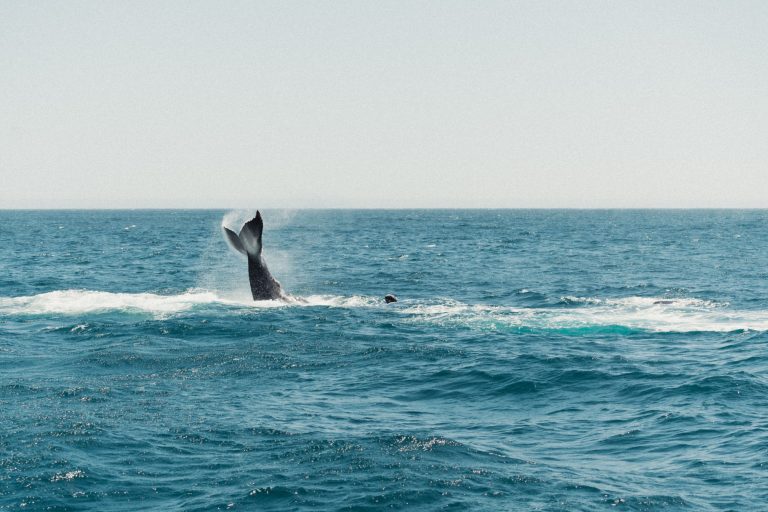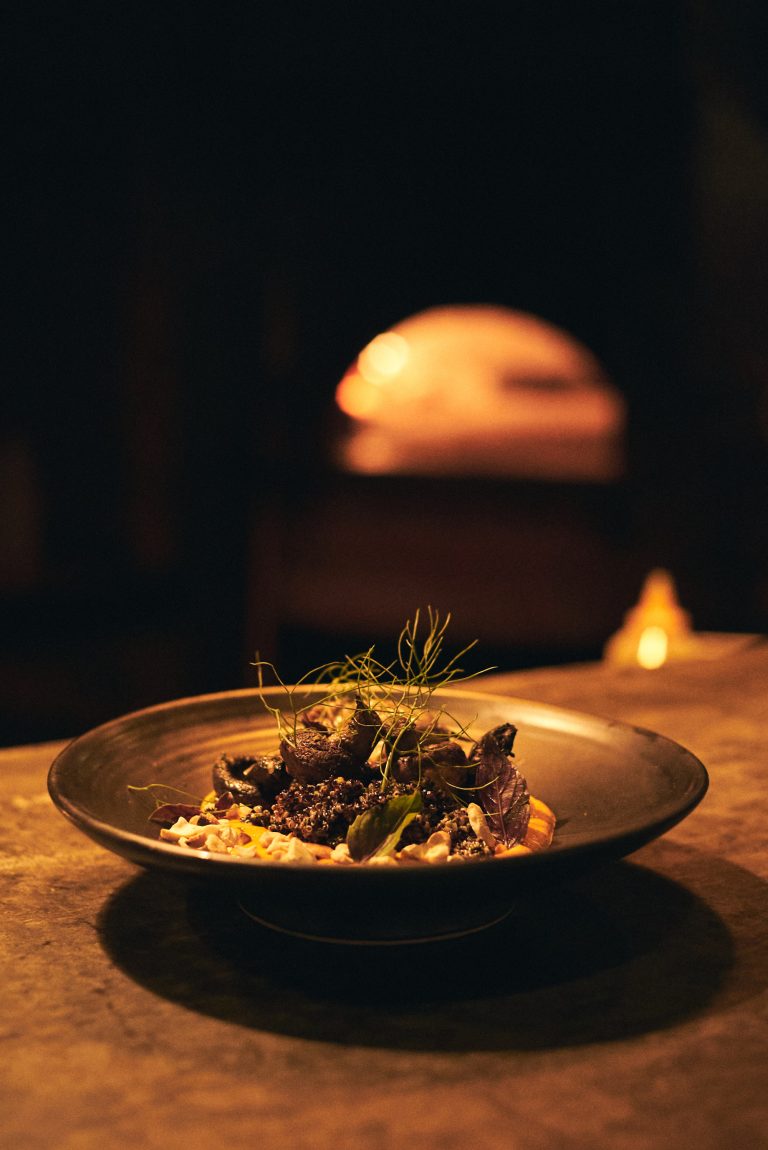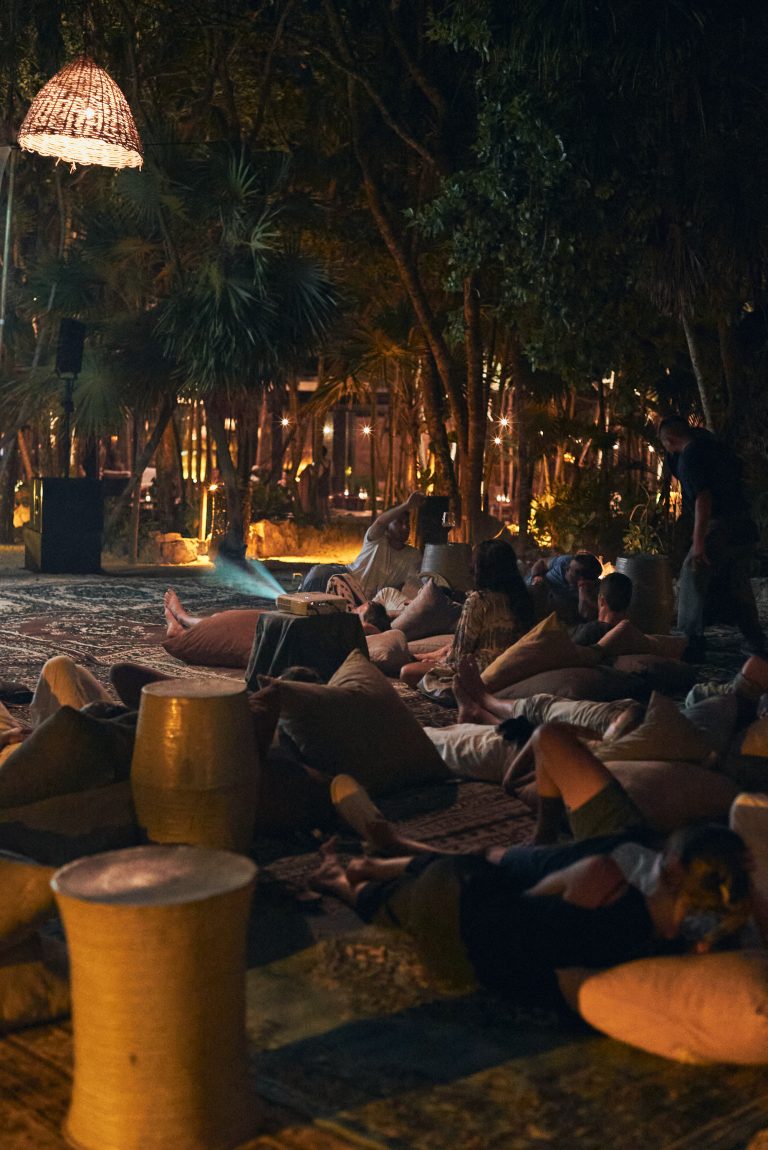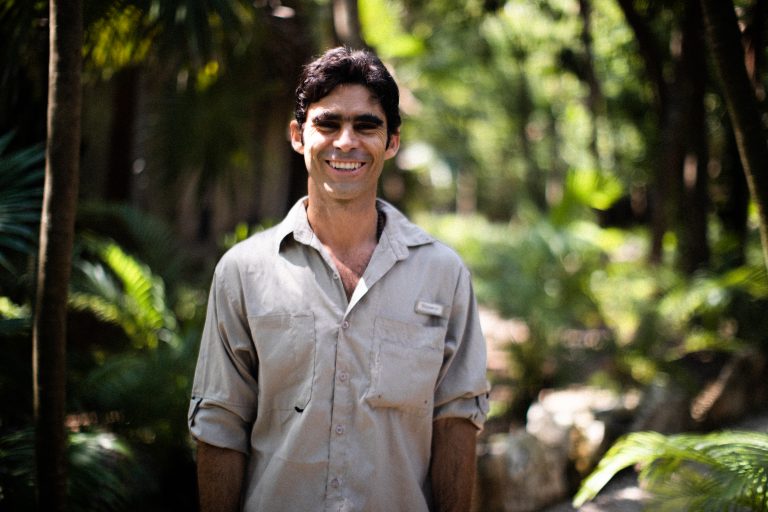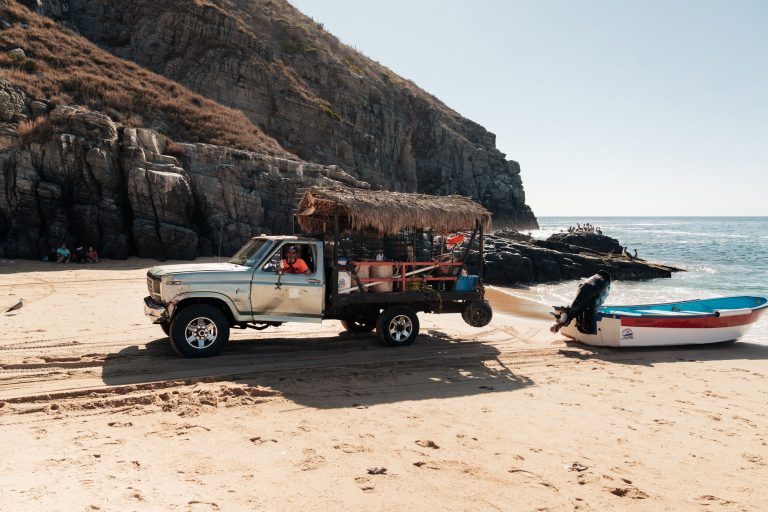The planet and its oceans need our help. At Habitas, we are committed to raising a collective eco-consciousness among our community. A shift in how we perceive and treat the Earth begins with open dialogues that address sustainable and regenerative practices. We are constantly pushing ourselves out of our comfort zone and into acknowledging our ecological footprint. This acknowledgement includes taking action to reduce it.
This Earth Day at Habitas Tulum began with inspiring news. Following a site inspection one week earlier by Oceanic Global, we received the non-profit’s most prestigious recognition, the Ocean Champion Badge. After rejoicing in this accomplishment, we later presented the documentary, Seaspiracy, which confronts the dark side of industrial fishing. Of course, in the spirit of aligning ideals, Chef Horacio Dárdano and his team prepared a delicious full vegan menu.
Our Director of Sustainability, Olmo Torres-Talamante, expanded on Habitas’s choice of film for the occasion, “It’s important more people know about industrial fishing as well as key species that are under some category of risk and take actions to eat consciously. However, it should be noted that the film’s argument is black or white, but the reality is much more complex. If the documentary helps more people stop eating fish and shellfish, that’s great as it is vital to cut the demand for seafood. We thought it was a provocative documentary suitable for the occasion and also got to send a message to consumers.” Indeed, while several of the documentary’s facts and storytelling tactics have been publicly disputed, director Ali Tabrizi’s film teaches us to question how our eating habits potentially fuel life-threatening practices for the planet.
At Moro, Habitas Tulum’s restaurant, we are asking ourselves those same questions. Uruguay-native Chef Horacio Dárdano believes in “an honest, sincere kitchen” that aims to combat many of the industry practices that have led to contamination and unsustainable food systems. “I have direct relationships with all of our suppliers. In the case of fish and other seafood, our principal supplier is De Garo Jamat, which works with small fisherman communities that use artisanal and responsible practices. The seafood served at Habitas comes from the Gulf of Mexico, the Caribbean, and the Pacific to diversify the menu.” Olmo adds, “When diversifying the menu, it is important to look for species with healthy stocks. By doing this, it reduces the demand for certain species and coastal localities.”
De Garo Jamat’s Managing Partner Akim Hernández spoke to us about why he believes they are responsible suppliers. “We partner with responsible local fishermen and cooperatives across Mexico who have up-to-date permits and use artisanal and target-specific techniques. They also respect fishing restrictions, minimum fish sizes, and production quotas.”
Sustainable fishing is often thought of as something that refers to solely the ecological impact it may have on the oceans. Another side to this is that there are people all over the world who depend on fishing for a living. Akim continues, “Sustainable fishing is a concept that includes three pillars: ecological impact, economic development, and social well-being. We want to make sure there is a positive impact on the society where it is taking place. There are fish populations that are regenerating and are able to provide a source of income for fishermen, their families, and communities in nearby areas, such as Cabo Pulmo, which is a fishing refuge.”
Olmo Torres works closely with Chef Horacio Dárdano, and the two are always in constant communication. They make a point to review the pros and cons regarding their suppliers, products, and practices. Currently, the team is working to redesign Moro’s menu. Olmo says, “Sustainability and regeneration are a one way road of continuous improvement. We don’t say that we are 100% sustainable, that is a conceptual error, as we can always do a bit more for our home planet.”
Apart from analyzing our supply chain and restaurant management, Olmo tells us, “It’s important to contribute to projects and initiatives involving local artisanal fishing communities that have responsible practices and are even helping the recovery of fish populations, habitats, or coral reef ecosystems. We are working on a high-impact project that has to do with this subject and will be announcing more information soon.”
At the end of the day, for those of us with privilege of choice and access to information, it’s about becoming responsible consumers and dwellers of this planet. Learning about where our food is sourced and supporting those who consciously produce it is a powerful shift. Every day is an opportunity to make choices that matter. Let us all learn to be congruent with our beliefs – on and off our plates.
*Please note that while opting for vegetarianism or veganism is a respectable decision, Habitas does not take a stance on diet. What you eat is a personal choice. Also, factors like privilege, race, religion, economics, and culture are important to take into consideration when discussing food systems and eating habits around the world.

